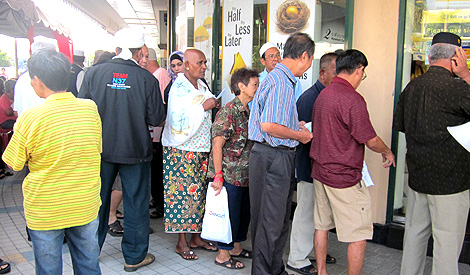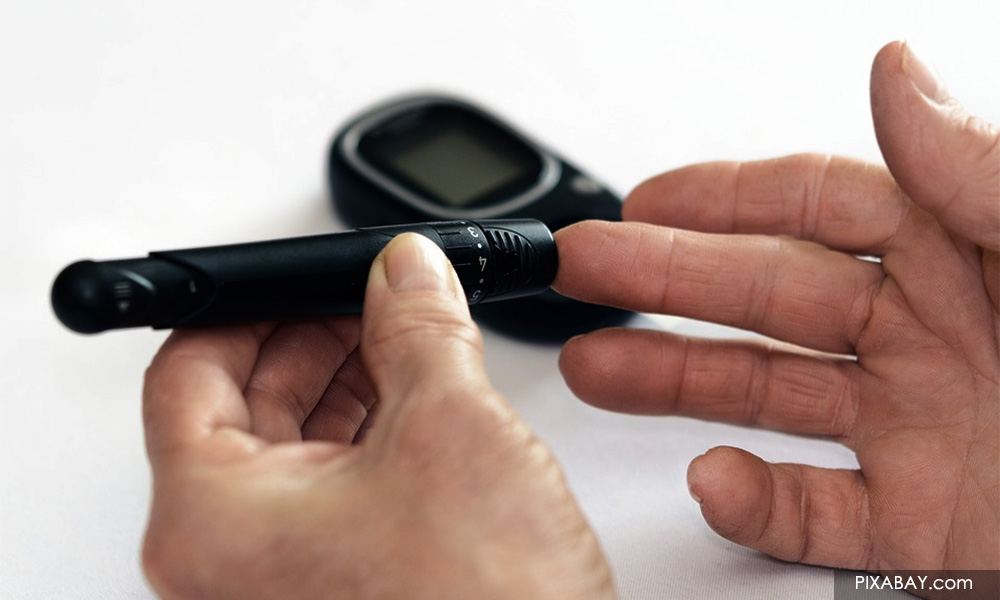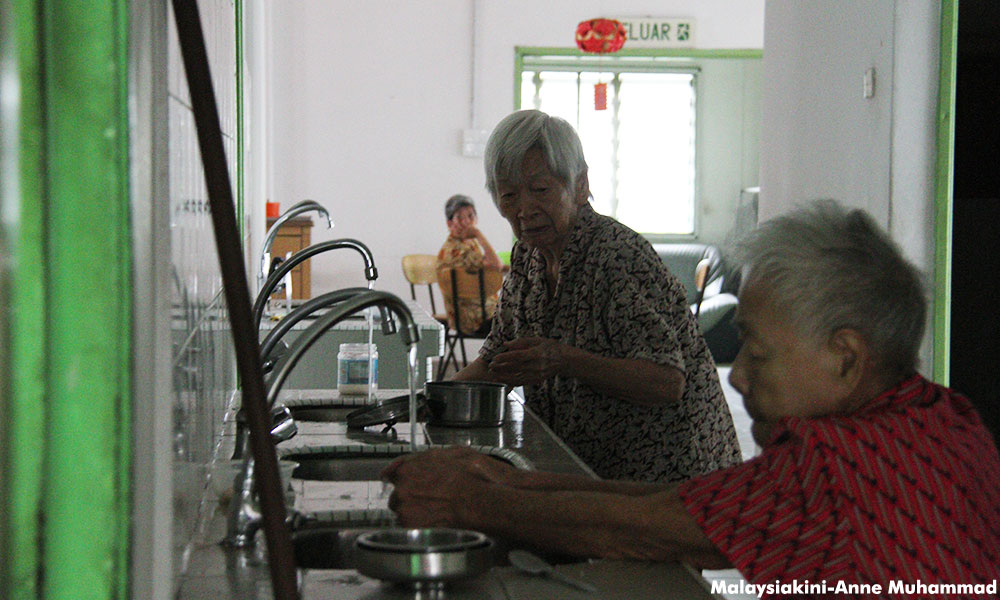
The movement control order (MCO) has been extended for the third time and we are now into its fourth phase as the government tries to contain the Covid-19 pandemic in the country.
These lockdown measures, while necessary, are causing major disruptions to our daily activities in work, business, social life and even plans for the future.
As people are now spending most of their time at home, there can be a significant drop in physical activity. For Malaysia’s warga emas, these movement restrictions also mean a long pause on certain activities that promote healthy ageing.
Older persons (65 and above) who make up 6.9 percent of Malaysia’s population and considered to be in the high-risk group, have been advised to avoid going out to public places during this time to protect against infections.
The walks in the park, qi gong and ballroom dancing sessions in the mornings that our seniors look forward to each day are now put on pause, cutting off their daily exercise routines and social interaction activities with friends they daily meet from the neighbourhood.
The sending and picking-up of the grandchildren from school will also be put on hold until further notice.
While these are routine activities, they are meaningful ways to spend time for our senior citizens.
The Malaysian Healthy Ageing Society (MHAS) is concerned that the sudden drop in activities due to the restrictions under the MCO may affect the physical, mental and emotional health of our older population more seriously than others if continued for longer periods.
“It is important for older persons to find ways to stay active physically, mentally and spiritually during this time to continue to age healthily,” said its president Dr Wong Teck Wee.
Watch blood sugar and blood pressure levels
“A sudden drop in physical activity can potentially cause many health issues for older adults such as spikes in blood sugar levels and hypertensive readings in blood pressure.
"Muscles must be used daily to help pump blood or the heart will have to work harder” added Wong, who is also a practising consultant interventional cardiologist.

“At this age, too much pressure should not be put on the heart to perform. That’s why daily light to moderate physical activities and exercises are encouraged for people 65 years and above. We still need the exercise, but not excessively” he said.
MHAS recommends that some light exercises daily be continued but in the house compound to maintain heart health.
Mobility to maintain independence
Maintaining mobility is also a concern.
“Older persons must keep moving. Exercise for the joints and muscles are extremely important to maintain mobility, stability and functionality in older persons” said Professor Nathan Vytialingam, an advisor to MHAS and the Dean of the Perdana School of Occupational Therapy.
“Independence is a high priority for our older citizens. Being physically independent enables older persons to continue to perform meaningful occupation such as cooking, housework, going for walks, gardening and dancing.
"This independence improves the quality of life of older persons.”
Fatal falls a worry
While it is important for older persons to maintain mobility, stability is equally important.
Persons aged 65-years-old and above are also at higher risk for falls.
“Globally, falls are a major public health problem” said consultant geriatrician Professor Dr Tan Maw Pin, who also is a council member with MHAS.
“According to the World Health Organisation, an estimated 646,000 fatal falls occur each year, making it the second leading cause of unintentional injury death, after road traffic injuries.”
Over 80 percent of fall-related fatalities occur in low and middle-income countries, with regions of the Western Pacific and Southeast Asia accounting for 60 percent of these deaths.
"In all regions of the world, death rates are highest among adults over the age of 60,” Tan said.
“Unfortunately, during these times, falls in older persons may also increase. Urgent medical attention must be sought. You should still go to hospital or visit a doctor if you have had a fall.
“The drop in physical activity from more time spent at home are a concern as older persons may develop mobility and stability issues that can put them at risk for falls” she added.
She noted, however, that while older persons are encouraged to keep moving, they must be careful not to overdo it.
In Malaysia, the National Health and Morbidity Survey in Older Persons in 2018 shows that 15 percent of all older Malaysians fall at least once a year. Half of those who fell sustained injuries and 20 percent required hospital treatment.
Falls can result in hip fractures and head injury as well as serious psychological problems among older people.
The University of Malaya Life After Falls research project has come up with an assessment and treatment strategy which can be delivered through the telephone or video calls.
This service is for those who have fallen in the past two months and are unable to get to a doctor. A falls hotline at 011 5505 3255 has been set up for those who wish to book an appointment.
Stay in touch with loved ones
Mental health of older persons during the MCO is also a major concern.
"Loneliness and isolation is a known risk factor for depression and anxiety in the older person. Interaction with friends, relatives or neighbours can stimulate mental and emotional wellbeing” said Professor Philip George, a consultant psychiatrist and past president of MHAS.

“Older persons should try to keep in touch with friends to overcome any feelings of loneliness.
“Take advantage of the time now to call up old friends and keep in touch with them” he suggested.
“Social media can be a useful tool in keeping in touch with loved ones and friends and this can be something to embrace at this time.
“The MCO can be a time to learn new ways to communicate on social media and this, too, can keep the mind active. Learning new things will also help improve memory and promote mental alertness.”
He, however, advises limited time on devices such as the TV, mobile phone, laptops or tablets as excessive screen time can also lead to vision and sleep problems.
Eat right to maintain health
Maintaining a healthy diet should also be a high priority and adjustments may need to be made to remain healthy.
“A whole-food, plant-based diet is highly recommended to maintain good health however, we should still avoid overeating,” said Wong.
“A whole-food, plant-based diet is more nutritious and complete if it contains enough beans, mushrooms, fresh vegetables and legumes.”
Fibre is also very important as constipation is a common digestive issue among older persons. Wong explained that older persons can experience digestive issues due to a sudden drop in physical activity.
“An increased vegetable intake, a moderate amount of fruit and less sugars and carbohydrates are recommended to maintain overall good health and healthy weight management," he said.
“For older persons with diabetes and hypertension, it will be important to keep taking the prescribed medication and keep to the strict diet recommended by the doctor."
We advise those dependent on medication to collect at least three month’s supply of medication in advance to avoid or limit anyone going out to public places during this time as has been advised by the authorities.
Get vaccinated to prevent influenza and pneumonia
While Covid-19 is the biggest global threat to health now, prevention against other health issues should not be ignored. Professor Nathan Vytialingam, who is also on the advisory council with the Global Coalition on Ageing advises that older persons consider vaccination to safeguard themselves against H1N1 influenza and pneumonia.
“These preventable illnesses can be more serious for older persons. It would be timely now for the pharmaceutical industry along with NGOs to play a part in educating the public on the importance of vaccination” he said, adding that adult vaccination is a driver of healthy ageing.
The author, Darren Atkinson is a council member of the Malaysian Healthy Ageing Society (MHAS). - Mkini
No comments:
Post a Comment
Note: Only a member of this blog may post a comment.